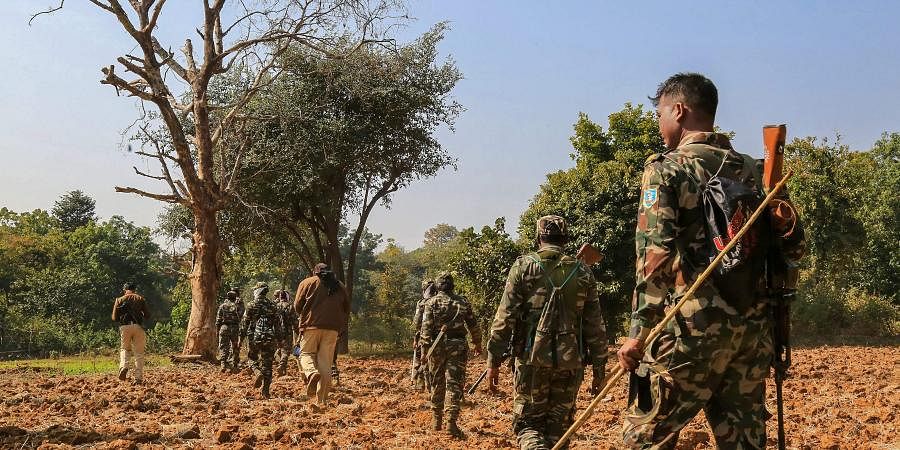In the last three years, 436 employees committed suicide in CAPFs: Government

In the Central Armed Police Forces (CAPFs) and Assam Rifles (AR), 436 people have killed themselves in the last three years. The Rajya Sabha was told on Wednesday by the Ministry of Home Affairs (MHA) that the CRPF had the most suicides during that time (154), while the BSF had the least (111).
Minister of State for Home Nityanand Rai said that a task force had been set up to find relevant risk factors and relevant risk groups and suggest ways to stop suicides and fratricides in CAPFs and AR. Work is being done on the report of the task force.
The Deccan Era reported on February 4 that a task force set up to look into suicide and fratricide cases in the CAPFs said that some of the reasons were discrimination between sub-groups, the trauma of being abused, bullying at work, fear of disciplinary or legal action, and a lack of communication between the company commander and jawans.
Must Read: The new Parliament building will have 5,000 pieces showing 5,000 years of Indian history.
The home ministry put together the task force to analyse events and write a full report. In its draught report to the MHA in January, the task force found that suicides and fratricides were caused by three main things: service conditions, work conditions, and personal or individual problems.
Rai said that out of 154 suicides in the CRPF, 54 people did it in 2020, 57 in 2021, and 43 in the last year. “Of the 111 suicides that happened in the BSF, 30 people killed themselves in 2020, 44 in 2021, and 37 in 2022,” he said.
“18 members of the CISF (Central Industrial Security Force) killed themselves in 2020, 21 in 2021, and 24 in 2022. While working for the SSB, 18 people killed themselves in 2020, nine in 2021, and 13 in the last year. Rai said that 13 ITBP (Indo-Tibetan Border Police) members had killed themselves in 2020, 10 in 2021, and 9 in the past year. In AR, nine personnel died by suicide in 2020, 14 in 2021 and seven in 2022, while in National Security Guard (NSG), two personnel died by suicide every year from 2020-23.
Also: A House committee points out that the NREGS budget has been cut and says the programme is the last chance for poor people in rural areas.
“Among the reasons for suicides, the task force noted long work hours, not enough time for rest and recreation, less job satisfaction than their counterparts in other sectors, a sense of isolation and lack of social and family support, and a weak system for resolving complaints,” a source said, citing details from the draught report.
Rai said steps taken/being undertaken to avoid incidents of suicides in CAPFs, AR & NSG personnel included “transparent policies pertaining to transfer and leave of CAPFs, AR and NSG personnel”. “Choice posting is taken into account as much as possible after a person has served in a hard area. The time spent in the hospital because of injuries while on duty is counted as time spent on duty. Officers should talk to troops regularly to find out what’s bothering them and fix it. “Regulating duty hours will make sure that soldiers get enough rest and relief,” he said.
Rai listed some of the other things that have been done or are being done: “Improving the living conditions of the troops, making sure they have enough entertainment, sports, and communication facilities, etc…
When it’s possible, a creche is also set up at different places to help female employees. They can also keep their government housing from their last posting (so they can stay with their families) while they’re working in hard-to-reach places. They’re also given better medical care and are given the chance to talk to specialists about their personal and psychological problems. They’re also given regular meditation and yoga classes to help them deal with stress.
Explained |Foreign lawyers can practise in India but not appear in court: What exactly changes now
MoS Rai said that they are adequately compensating the troops deployed in certain difficult areas and also designating retired CAPF personnel as ex-CAPF personnel for better identity and community recognition.
“The MHA has taken a number of steps to help all employees feel less stressed. As part of this process, “Art of Living” courses are given to all paramilitary personnel. These courses have a positive effect on jawans, and promotions are given to eligible personnel on a regular basis, as soon as a spot opens up. Even if you don’t get promoted because there aren’t enough openings, you get money from the Modified Assured Career Progression (MACP) programme after 10, 20, and 30 years of service, he said.
Related Posts
| Assam Rifles will march in the Republic Day parade with a 144-person group, emphasising gender equality. |



